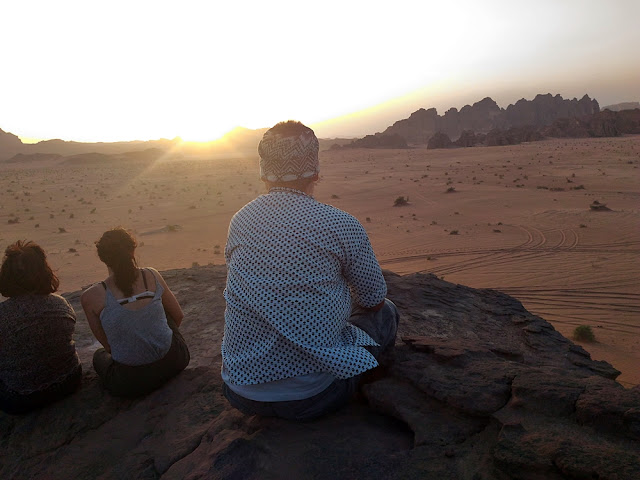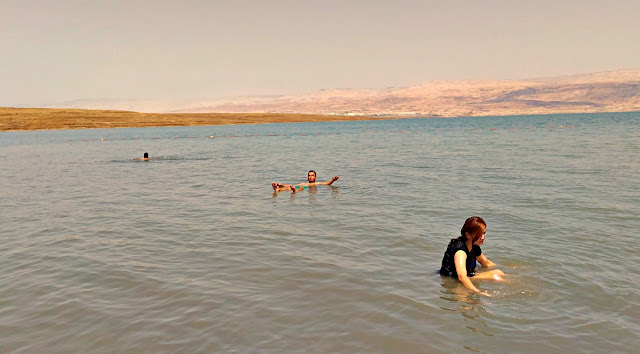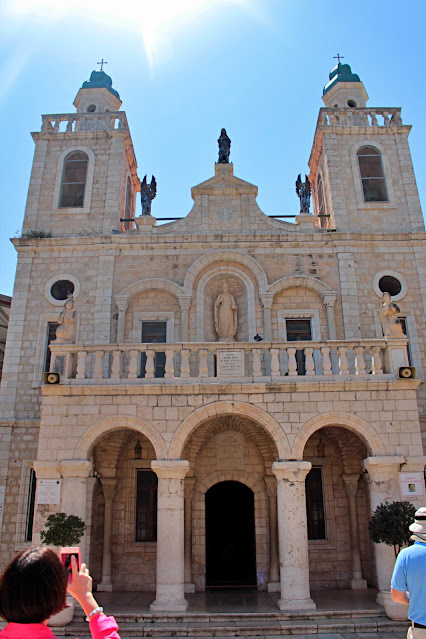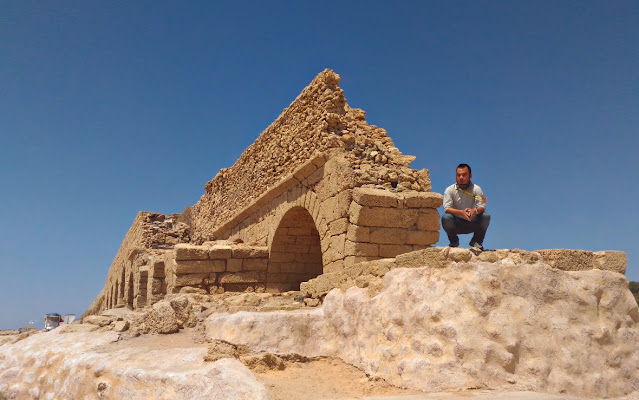When one mentions the “Holy
Land”, the first thing that comes to mind for most Christians is the birthplace
of Jesus Christ in the Palestinian town of Bethlehem, which is ten kilometers
from Jerusalem. While in fact, this is true, the scope of the usual holy land
journey encompasses three countries: Egypt, Jordan, and Israel. This route
includes stops at a few historic locations in addition to following the
footsteps of Christ, Moses, John the Baptist, and Mother Mary. Here are a few
locations to inspire you to travel to the holy land.
Jordan
Mount Nebo
After arriving in the capital city of Amman for a day of sightseeing, our Holy Land itinerary began at Mount Nebo, a 2,330-foot-high plateau mentioned in the Hebrew Bible as the spot where Moses saw the Promised Land (Israel). No hiking is required at this destination as the road leading here is already elevated.
You will travel
through the village of Madaba, which is home to the Byzantine church of Saint
George, on your route down Mount Nebo. Inside, you will find the 6th-century
Madaba Mosaic Map seen on the floor of the church. This map is the oldest
remaining cartographic depiction of the holy land.
Wadi Rum
It is described as "vast, echoing, and God-like" by Lawrence of Arabia. Wadi Rum summons an unearthly setting of another planet.
It's no wonder that "The
Martian" was filmed here. One stares in awe at the vast, breathtaking
terrain of Wadi Rum, which is dotted with camel footprints and filled with
carved canyons and dunes of fine sand. Indeed, one easily describes it as the
most “quintessential desert” on Earth.
Petra
Poet John William Burgon described the remains of the Lost City of Petra as "a rose-red city half as ancient as time." Founded in 312 BC by the Arab Nabataeans, the remains of the city showcase the wonderful engineering skills of the Nabataeans.
Structres carved from massive walls
surround this ancient city. The path leading to the “Treasury” —Petra’s iconic
structure—is a narrow path hewed between gigantic golden boulders, called the “Siq”,
which is another attraction to behold.
Egypt
Mount Sinai
Crossing the border from Israel to Egypt takes you to the Sinai Peninsula where the biblical mountain Mount Sinai towers over a picturesque mountainous region. A three-hour hike with the Bedouin guides starting at 3 am will have you standing at the top by sunrise.
Make sure to savor the moment on top as this could be the very place where “Christian
life, piety and worship” was founded when God handed to Moses the Ten
Commandments on this mountain. Near the foot of the mountain is the Saint
Catherine’s Monastery where the biblical burning bush is believed to be
located.
Pyramids of Giza
Despite having no relation to the holy land tour, the Pyramid of Giza is an absolutely perfect side trip because of its historic significance and for the simple reason that it is one of the wonders of the world.
Before you fly out from Cairo, make sure you get to visit
the majestic Giza pyramids and the Sphinx up close. A
dinner cruise along the Nile River will round up the evening.
Israel and Palestine
The Dead Sea
Float your worries away as you literally—float over the water with a salinity of 342 g/kg, making the Dead Sea as one of the saltiest bodies of water in the world. Because of its high salinity, no living animal or plants exist in this sea-thus the name Dead Sea.
One thing for sure, you can float here effortlessly. On the way, you can also
pass by the city of Jericho—the lowest city in the world at 274.02 meters below
sea level.
The Wailing Wall
The Western Wall or most popularly known as the ‘Wailing Wall’, is the holiest place of prayer of the Jews. The first seven layers made from meleke limestone, dates back to the reign of Herod the Great, making it the same set of stones Jesus laid eyes on during his time.
Known today as a place of prayer, it was termed ‘Wailing Wall’
because of the practice of Jews gathering near this part of Old Jerusalem’s
wall to weep over the destructions of their temples, during the Byzantine
Empire.
City of Nazareth
Known as the “Arab capital of Israel”, Nazareth is described in the New Testament as the hometown of Mary and where Jesus Christ spent his childhood.
Here, you will visit the Church of the
Annunciation—where the angel Gabriel told Mary that she will give birth to the
son of God and whom she’ll name as “Yehoshua“. Near Nazareth situates Mount
Tabor where you will also visit the Church of Transfiguration of the Lord Jesus
Christ located at the mountain’s peak.
Tower of Cana
In the town of Cana, you will visit the Church of the Wedding Feast in Cana. This church symbolizes the first miracle attributed to Jesus Christ: the Wedding at Cana. This is when he transformed water into wine.
A short distance from here is the Mount of Beatitudes where you may follow Christ's footsteps to the spot where he "preached the sermon on the mount."
Sea of Galilee
After a day of church hopping, you will enjoy some splendid nature on a morning cruise over the waters of the Sea of Galilee. According to the New Testament, this is where Jesus performed the miracle of walking on water.
Other miracles Jesus performed in the Sea of
Galilee include the miraculous catch of fish and the calming of the storm.
Afterward, a brief side trip to the ancient town of Capernaum takes you to the
ruins of the House of Peter and the Synagogue of Jesus. You end this beautiful
day with a renewal of baptismal vows at the nearby Jordan River.
Caesarea Archeological Park
The aqueduct ruins of Caesarea is an ancient city founded by Herod the Great in 25 BCE. It flourished as a major port city during the height of the Roman Empire. After Herod’s death, it started to witness a tumultuous period before seeing a rebirth during the Byzantine period.
In the Middle Ages, the city of Caesarea was conquered by
Muslim invaders and became under the Rashidun Caliphate until the Crusaders
liberated the city in the 11th century. Today, a great deal of ruins still
stands over the old site of the ancient city of Caesarea – adjacent to the
modern town inhabited by more than 4,000 people.
Mount Carmel
Mount Carmel is located in the city of Haifa and offers a panoramic view of the Mediterranean Sea.
This is the
location of the Cave of Elijah and the Carmel Church, where the prophet Elijah
prayed for rain to end a three-and-a-half-year famine. The Baha'i Hanging
Gardens, a UNESCO World Heritage site, is close by.
Bethlehem
Saving the best two destinations for last are the places where Jesus Christ was born and died on the cross. In Bethlehem—which according to the bible is where Christ was born, you can even get close to the holy spot where Jesus was born inside the Church of Nativity.
Other holy destinations in Bethlehem includes the Shepherds Field, Mount
Olives–the place where Jesus recited Christ’s prayer to his 12 disciples, the
Church of Pater Noster, the Dominus Flevit Church–all churches with biblical
importance, and the Garden of Gethsemane where Jesus prayed before he was
betrayed by Judas and arrested.
Old City of Jerusalem
The apex of any holy land tour is, of course, the retracing of the “Via Dolorosa” or Jesus’ “Way of the Cross” inside the old city of Jerusalem.
Your group will start at the gates of Antonia Fortress following the 14 Stations of the Cross ending inside the Church of the Holy Sepulcher where Christendom’s most sacred place is housed: the spot of Jesus Christ’s burial and resurrection. Expect to attain a different kind of spiritual feeling throughout this part of your journey. Walking the Via Dolorosa will remain with you forever.





































